Luke Yeh
ezCoref: Towards Unifying Annotation Guidelines for Coreference Resolution
Oct 13, 2022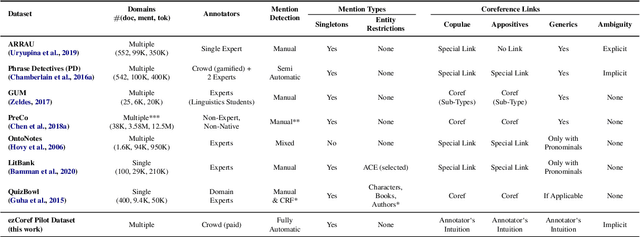
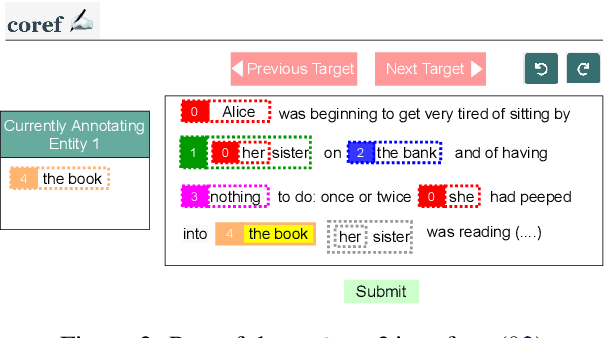
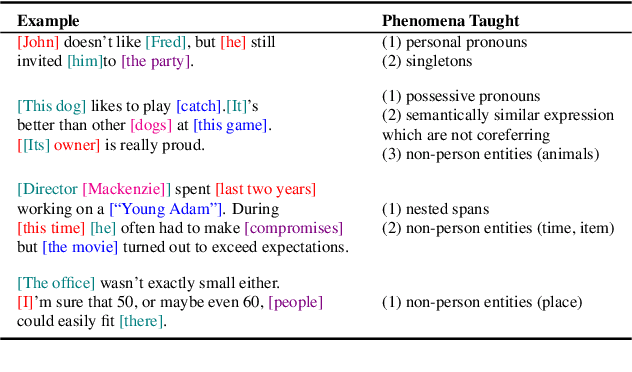
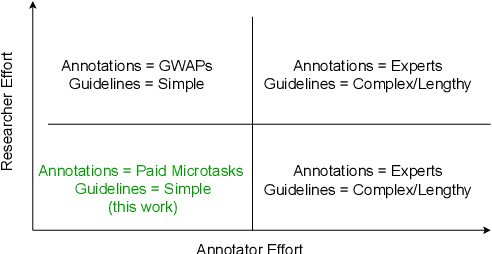
Abstract:Large-scale, high-quality corpora are critical for advancing research in coreference resolution. However, existing datasets vary in their definition of coreferences and have been collected via complex and lengthy guidelines that are curated for linguistic experts. These concerns have sparked a growing interest among researchers to curate a unified set of guidelines suitable for annotators with various backgrounds. In this work, we develop a crowdsourcing-friendly coreference annotation methodology, ezCoref, consisting of an annotation tool and an interactive tutorial. We use ezCoref to re-annotate 240 passages from seven existing English coreference datasets (spanning fiction, news, and multiple other domains) while teaching annotators only cases that are treated similarly across these datasets. Surprisingly, we find that reasonable quality annotations were already achievable (>90% agreement between the crowd and expert annotations) even without extensive training. On carefully analyzing the remaining disagreements, we identify the presence of linguistic cases that our annotators unanimously agree upon but lack unified treatments (e.g., generic pronouns, appositives) in existing datasets. We propose the research community should revisit these phenomena when curating future unified annotation guidelines.
Investigating Sports Commentator Bias within a Large Corpus of American Football Broadcasts
Oct 19, 2019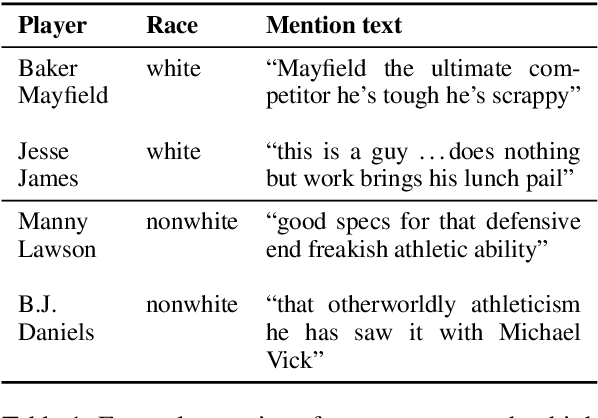
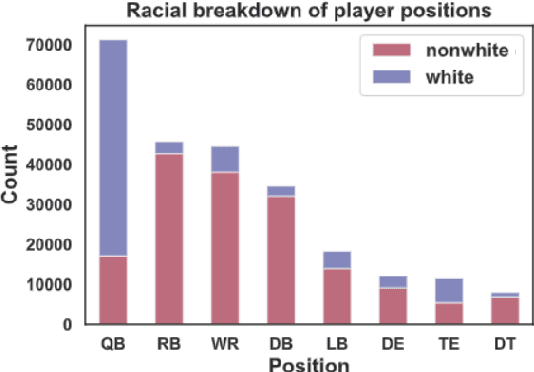
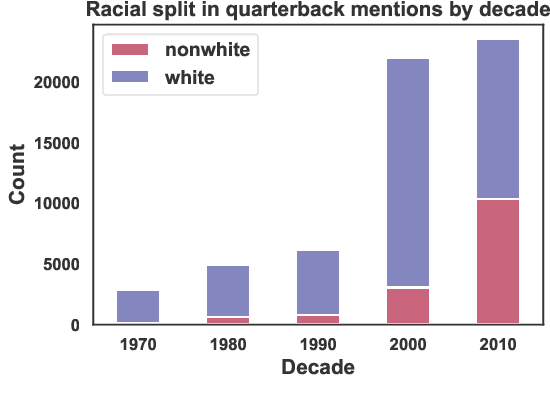

Abstract:Sports broadcasters inject drama into play-by-play commentary by building team and player narratives through subjective analyses and anecdotes. Prior studies based on small datasets and manual coding show that such theatrics evince commentator bias in sports broadcasts. To examine this phenomenon, we assemble FOOTBALL, which contains 1,455 broadcast transcripts from American football games across six decades that are automatically annotated with 250K player mentions and linked with racial metadata. We identify major confounding factors for researchers examining racial bias in FOOTBALL, and perform a computational analysis that supports conclusions from prior social science studies.
 Add to Chrome
Add to Chrome Add to Firefox
Add to Firefox Add to Edge
Add to Edge